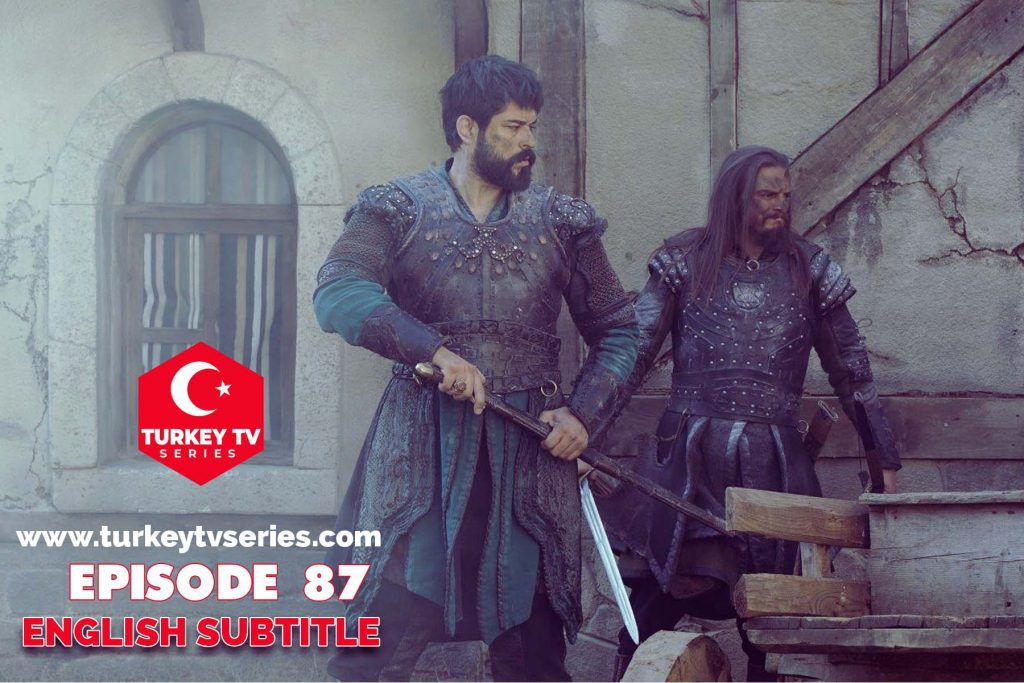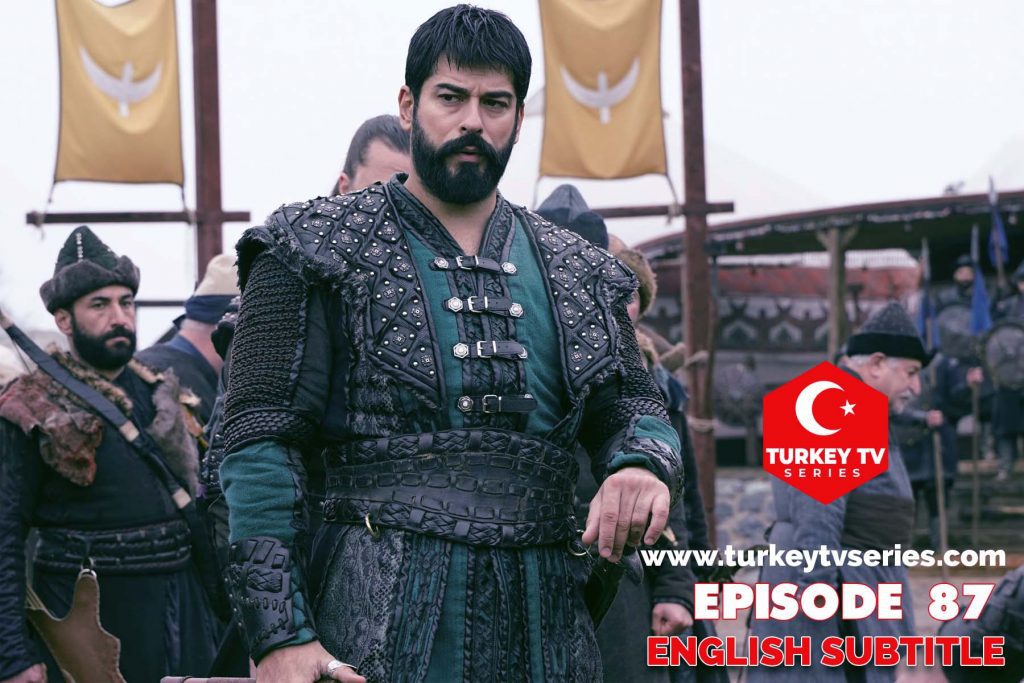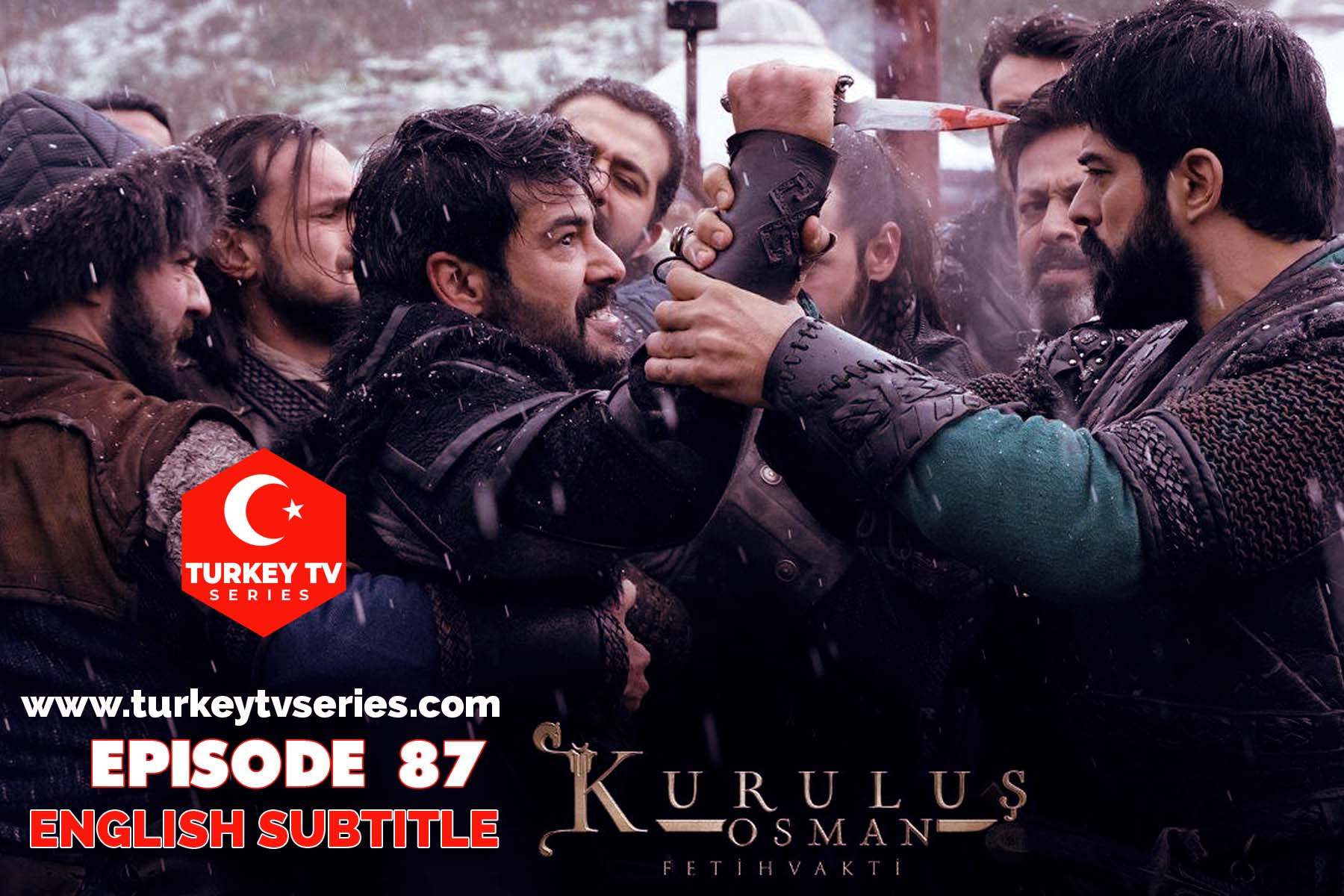Kurulus Osman 87 English Subtitle | Turkey TV Series
Kurulus Osman 87 English Subtitle
Kurulus Osman Episode 87 English Subtitle | Turkey TV Series
Facebook Page
LAW: SULTANIC LAW (KÂNÛN) AND RELIGIOUS LAW (ŞERÎAT)
Kurulus Osman 87 English Subtitle The fundamental principles of the kânûn-i osmanî had been codified by the end of the fourteenth century, even before their kânûnname of Mehmed the Conqueror and the sanjak kânûnâmes of Rumelia and Anatolia. In the sixteenth century, the kânûnnâmes for the Beyler basilisks of Anatolia and Rûm (Amasya-Sivas) were extended to include the provinces of eastern Anatolia, Syria, Cyprus, and Georgia. The sanjak law of Rumelia similarly formed the basis of legislation in Hungary. Kurulus Osman 87
KurKurulus Osman Episode 87 English Subtitle According to the late fifteenth century kânunnâmes, the basic principle of the kânûn-i osmanî was that ‘the reâyâ and the land belong to the sultan’. Thus no one had any right or could exercise any authority over the land and peasantry without a specific mandate from the sultan. This principle secured the sultan’s absolute sovereignty in the empire, eventually eliminating all forms of legal lordship in the provinces. It allowed him to establish the timar system and to exercise some control over valves and private estates. Kurulus Osman 87 English Subtitle

It was in fact the cornerstone of the autocratic and centralizing Ottoman regime. The kânûn-i osmanî, in principle, Kurulus Osman 87 English Subtitle condemned forced labor and services, commuting them in most cases for cash levies. It introduced a system of taxation that was, in general, simpler and less liable to abuse than the earlier systems of feudal services. Kurulus Osman 85 ENG
KurKurulus Osman Episode 87 English Subtitle 8 Emergency provisions were to be levied and forced labor exacted only when this was in the imperial interest and only after the sultan had issued a special decree; at all other times, the functionaries bought provisions from the reâya at market prices. These regulations aimed to prevent the military class from oppressing the peasantry and, therefore, assessment according to means and collection according to the law were the governing principles of the tax system. Kurulus Osman 87 English SubtitleThe kânûn-i osmanî attached great importance to the establishment of the rate of each tax and the time and manner of its collection and contained provisions to prevent the collection of a tax twice under different names.
It exempted unpaid priests, the aged and infirm, and women and children. The criminal code was applicable throughout the empire. It was a code of kânun, which the kadîs administered, supplementing the shari’ah. For severe crimes, such as murder, rape, robbery with violence, or highway robbery, it prescribed execution or mutilation and forbade the public authorities to accept money fines in their place. Separate chapters deal with adultery, physical assault, wine- drinking and various categories of theft, prescribing as punishments fines or the bastinado. Kurulus Osman 87 English Subtitle
The penal code was drawn up according to principles such as the lex talionis, which also formed the basis of sharia law, and fixed fines and punishments that the sharia did not clearly prescribe. For example, a horse thief had his hand amputated, or paid an equivalent fine, fixed at two hundred akces – about five gold ducats. For wine-drinking, the kâdî decreed a certain number of bastinado blows and the sultanic law fixed a fine. Adulterers were found according to their means – three hundred akces for the rich, two hundred akces for the middle-income group, and one hundred akces for the poor. For illegal sexual relations, unmarried persons were fined one hundred, fifty, forty or thirty akces, according to their means.
Turkey TV Series The usual forms of corporal punishment were amputation of a hand or leg, condemnation to the galleys, and the bastinado. Beatings or, in their place, money fines, were the penalties for minor crimes. The authorities used torture to force criminals to confess and deaths from torture were not subject to inquiry. If a criminal was not found the whole community, such as a village, could be punished. The severity of the punishment varied according to whether the guilty party was male or female, free or slave, married or unmarried, Muslim or non-Muslim, the second member of each of these pairs paying half the amount of the fine. The imperial council in the capital, or councils under the presidency of the head of the military organization to which they belonged, tried members of the military class. On matters concerning public order the sultan, his viziers or other representatives of his authority could impose sentences or grant pardons unrestricted by the kânûnnâme. A bloodless execution by the bowstring was reserved for members of the dynasty and high-ranking officials. Kurulus Osman 84 ENG

Turkey TV Series Ottoman law attached great importance to precedent and gave wide discretionary powers to the judges, whom fermâns frequently instruct simply to act in accordance with ‘the law that is customarily applied’. The law of Silistra, dating from the period of Süleyman I, states that: In a situation concerning which the law contains no clear, written command, the kadı should officially refer the matter to the capital. Acting in accordance with the command that arrives, he should make a decision to solve the problem. He should record this decision in his register and act according to it in similar situations. The sultan’s official diploma appointed the kâdîs to administer and execute both şerîat and kânûn. Kurulus Osman 87 English Subtitle They had at their disposal collections of sultanic law, which did not have to be officially certified copies. The kadîs merely recorded in their official registers the legislative orders which they had received and with which they were required to act conformably. They could if they wished indicate these modifications in the copies of the kânûnnâmes in their possession. Ottoman law was thus in a state of continuous development, and the hundreds of annotated kânûnnâmes that have come down to us are a valuable source for its history. Kurulus Osman 83 ENG
No accused person could be punished without the kadıs judgment. The enforcement of sentences was the sole right of the beys, but without the kâdî’s judgment, they could not exact even the smallest money fine. The law even required that kapîkulus, come to administer punishment on the sultan’s orders, should bring the accused into the kadı ‘s presence and obtain his judgment.
In civil law cases within the scope of the şerîat, even the sultan had to respect the kâdî’s decisions. For example, in inheritance cases where there were no heirs, the inheritable property remained in the hands of the executor for one year and the Treasury could claim it only after this period. The kadî recorded and held for safekeeping the property of any deceased non-Muslim foreigner until an heir appeared. The law forbade the Treasury to confiscate such property. Kurulus Osman 87 English Subtitle This is a description of the ideal forms of Ottoman law. The sultans, in fact, had sometimes to issue adâletnâmes – rescripts redressing the malpractices of provincial authorities. These deal most frequently with cases where kâdîs and other officials had imposed forced labor or unlawful levies of provisions on the reâyâ, or illegally increased the rates of fines and dues. Turkey TV Series
To Be continue…..




[…] They sealed what became a lasting alliance by Orhan ’ s marriage to Cantacuzenus ’ s second daughter, Theodora. 20 Two thousand Turkish troops led by Orhan ’ s sons joined Cantacuzenus ’ s son Matthew in a joint campaign to evict Stefan Dushan and plunder Thrace. The palace group around the empress asked for a truce, and Cantacuzenus entered Constantinople victorious in 1347. Watch Now […]
[…] They sealed what became a lasting alliance by Orhan ’ s marriage to Cantacuzenus ’ s second daughter, Theodora. 20 Two thousand Turkish troops led by Orhan ’ s sons joined Cantacuzenus ’ s son Matthew in a joint campaign to evict Stefan Dushan and plunder Thrace. The palace group around the empress asked for a truce, and Cantacuzenus entered Constantinople victorious in 1347. Watch Now […]
[…] They sealed what became a lasting alliance by Orhan ’ s marriage to Cantacuzenus ’ s second daughter, Theodora. 20 Two thousand Turkish troops led by Orhan ’ s sons joined Cantacuzenus ’ s son Matthew in a joint campaign to evict Stefan Dushan and plunder Thrace. The palace group around the empress asked for a truce, and Cantacuzenus entered Constantinople victorious in 1347. Watch Now […]